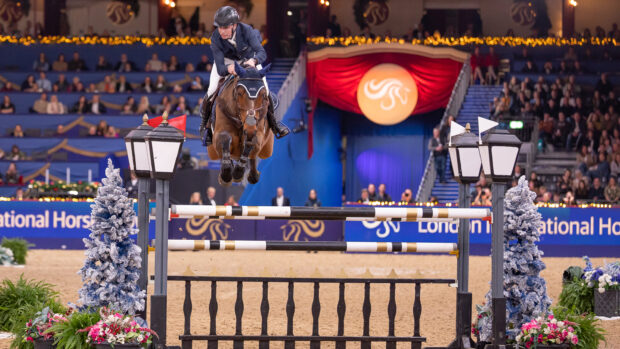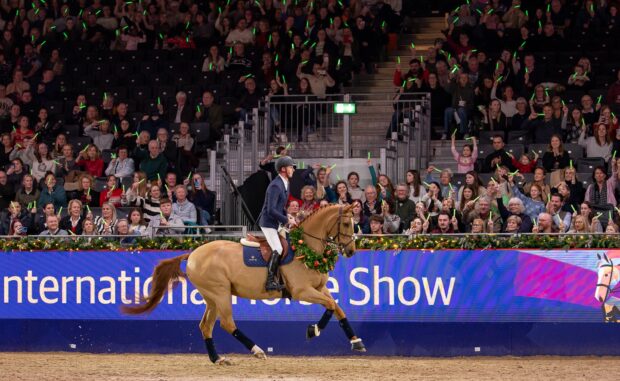Showjumpers have made a last-ditch appeal to the FEI to revise its elimination rule ahead of the federation’s general assembly (18 to 21 November).
The showjumping rule, introduced for this year, states that the president of the ground jury (or a ground jury member delegated in the president’s absence) can eliminate a combination if they believe allowing them to continue would be “contrary to the principles of horse welfare”.
The International Jumping Riders Club (IJRC) had repeatedly called for having one or more top riders to advise the ground jury in these “split-second”, unappealable elimination decisions, at Olympic Games and major events. But the FEI pushed back (news, 9 November; 12 January).
The crux of the IJRC’s concerns is that the scenarios that could lead to elimination “remain undefined” and the club wants more clarity. The situation has come to a head as decisions on rules for 2024 are rubber-stamped at the FEI’s general assembly.
The FEI is also concerned that “split-second subjectivity could have career-changing outcomes for riders and national teams, especially at next year’s Olympic Games, where there is no drop score”. This is why the club is pushing for top riders to be allowed to “support” the ground jury in these decisions at major events.
But the FEI jumping committee has said that “the same rule must apply for all level of competitions”, adding that from a legal perspective “it is difficult to give the mandate to a person who is not an official”. The FEI board has backed the FEI jumping committee on this.
It follows a long-running debate, brought into focus by Olympic gold medallist Nick Skelton in his H&H column after Tokyo and which he repeated during the IJRC’s general assembly last December, citing a similar advisory role in motorsport. He also suggested trialling a panel at an event, such as a Nations Cup, to see how it works.
An amendment, which is among the proposed changes to be voted on at the general assembly, would give the ground jury power to eliminate a combination if it believes it “would be in the best interest of the wellbeing and/or safety of the horse and/or athlete”. The IJRC welcomes this new wording – but it wants more, namely a clear definition of cases leading to elimination and a top rider to act as support to officials in an advisory role during major events.
“The IJRC initially hoped the advisory role might be adopted in time for the 2023 European Championships. That was not achievable. The IJRC has now taken the matter through the FEI rule-changing consultation process for 2024 – to be finalised in Mexico City on November 21,” said a statement from the IJRC.
“Currently, the FEI is recommending national federations to support the original premise.
“It says the same rule must apply at all levels of competition; that from a legal perspective it is difficult to give a mandate to someone who is not
an official; and that the same principle/provision must apply across disciplines.
“The rule is understood to result from the growing pressure of social licence to operate, and the potential pushback from the non-equestrian public when negative images circulate on social media.
“However, the scenarios that should be eliminated remain undefined and the IJRC seeks more clarity.”
The statement gave examples of an awkward-looking jump that could result from over-facing a horse or rider of limited ability – but that “equally it could be an isolated incident that is part of the normal learning curve of a young horse in expert hands”.
“In all sport, the decision of a ground jury (judges) is final, but the principle of utilising other experienced personnel as part of the decision-making process on the field of play at major FEI events is not unprecedented,” added the IJRC statement.
“Since 2011, FEI dressage has utilised a judges supervisory panel (JSP), with powers to ‘correct’ marks given by the ground jury, for example, missing a clear mistake during the test or where one judge’s marks are notably out of
kilter with colleagues’ marks.
“The dressage JSP is mandatory at Olympic Games, world and continental championships and World Cup finals, and the JSP may attend other lower level shows at its discretion. Notably, the JSP is drawn from trainers who are not judges, as well as FEI accredited judges.
“The role suggested by the IJRC does not have the formalised structure of the dressage JSP, and is only intended as advisory, not to overrule.”
It added: “For the avoidance of doubt, the IJRC supports the elimination of a horse in instances of blood.”
You might also be interested in:

Subscribe to Horse & Hound magazine today – and enjoy unlimited website access all year round

Calls for changes to elimination rule over ‘serious concerns’

Nick Skelton on Tokyo 2020: ‘The new showjumping format was a disaster’

Britain urges FEI to relax rules on replacement classes after washout spring
Horse & Hound magazine, out every Thursday, is packed with all the latest news and reports, as well as interviews, specials, nostalgia, vet and training advice. Find how you can enjoy the magazine delivered to your door every week, plus options to upgrade your subscription to access our online service that brings you breaking news and reports as well as other benefits.




